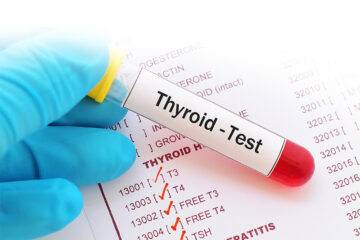Acupuncture for Anxiety, Sleep, and Energy: What the Research (and Our Patients) Say

Acupuncture has been practiced for thousands of years, but in recent decades it has gained recognition in modern healthcare as a safe, effective treatment for a wide range of conditions. While it’s often associated with pain relief, more people are now turning to acupuncture for something else entirely: supporting mental health, improving sleep, and boosting energy levels.
If you’re dealing with persistent anxiety, restless nights, or low energy that doesn’t seem to improve with rest, acupuncture may be the missing piece in your wellness plan.
How Acupuncture Works
Acupuncture involves the insertion of very thin, sterile needles into specific points on the body. These points are located along pathways known as meridians, which traditional Chinese medicine describes as channels that carry energy—or “qi”—through the body.
From a modern biomedical perspective, acupuncture stimulates:
- The nervous system, promoting relaxation
- The release of endorphins and other neurotransmitters
- Improved circulation and oxygen delivery to tissues
- Balancing of the autonomic nervous system, which governs stress, sleep, digestion, and more
By targeting specific acupuncture points, practitioners can help regulate physical and emotional systems that are out of balance—without the need for medications.
Acupuncture for Anxiety
Chronic anxiety isn’t just a mental burden—it takes a toll on your entire body. Elevated cortisol, a key stress hormone, can interfere with sleep, digestion, immunity, and even hormone balance. While conventional treatments like therapy and medication are helpful for many, others find that acupuncture offers additional relief—without side effects.
What the research says:
Studies have shown that acupuncture can reduce symptoms of anxiety by affecting the limbic system, the part of the brain involved in processing emotions. A 2021 meta-analysis in the Journal of Affective Disorders concluded that acupuncture significantly reduced both generalized anxiety and anxiety-related insomnia.
How it helps:
- Calms overactive stress responses
- Lowers heart rate and blood pressure
- Promotes production of calming neurotransmitters like serotonin and GABA
- Eases physical symptoms such as muscle tension, digestive upset, and shallow breathing
Patients often describe feeling deeply relaxed after a session, and many report that regular treatments reduce the frequency and intensity of anxious episodes over time.
Acupuncture for Better Sleep
Insomnia and poor sleep quality are among the most common reasons people seek acupuncture—and with good reason. Sleep issues are often tied to stress, hormonal imbalances, or dysregulated circadian rhythms, all of which acupuncture can help address.
What the research says:
A 2020 study published in Sleep Medicine Reviews found that acupuncture was effective in improving both sleep quality and duration in people with chronic insomnia, with fewer side effects than pharmaceutical sleep aids.
How it helps:
- Balances melatonin production
- Calms the nervous system to support deeper, uninterrupted sleep
- Reduces physical tension that may interfere with falling asleep
- Helps treat the underlying causes of insomnia, such as anxiety or hormonal changes
Many patients report that they not only fall asleep faster but also wake up feeling more rested and alert—a key sign of restorative sleep.
Acupuncture for Energy and Fatigue
Low energy is a complex issue. It can be tied to poor sleep, chronic stress, nutrient deficiencies, or underlying health conditions. Because acupuncture works on multiple systems at once—nervous, endocrine, and circulatory—it offers a comprehensive approach to restoring natural energy levels.
What the research says:
A number of studies have shown that acupuncture can help reduce fatigue in people with conditions like chronic fatigue syndrome, fibromyalgia, and cancer-related fatigue. One study published in Complementary Therapies in Medicine found significant improvement in fatigue and quality of life among participants who received regular acupuncture.
How it helps:
- Enhances blood flow and oxygenation of tissues
- Regulates adrenal function and cortisol levels
- Improves digestion and nutrient absorption
- Reduces inflammation, a key driver of chronic fatigue
Patients often describe a “lighter” feeling after treatments—less weighed down, more mentally clear, and more capable of sustaining energy throughout the day.
What Patients Say
While research supports acupuncture’s benefits, patient experience often tells the story best. Common feedback includes:
- “I feel calmer for days after a session.”
- “My sleep improved after just a few treatments.”
- “It’s the only thing that helps me recharge without relying on caffeine.”
- “I didn’t realize how much stress I was holding in my body until it started to release.”
Many patients choose to include acupuncture in their long-term wellness routine, using it as a tool not just for recovery, but for prevention and resilience.
Is Acupuncture Right for You?
If you’ve been living with anxiety, poor sleep, or low energy—and haven’t found lasting relief—acupuncture may offer a new path forward. It’s gentle, drug-free, and tailored to your unique needs. Rather than treating symptoms in isolation, it helps bring your entire system back into balance.
Whether used alone or as part of an integrative wellness plan, acupuncture continues to prove itself as a powerful ally in restoring physical, mental, and emotional health. We recommend Waukee Wellness.
Thyroid Function Tests: What They Reveal About Your Body
January 30, 2026Essential Things to Know Before Hiring In-Home Care Services
January 23, 2026
Leave a reply Cancel reply
-
Mesothelioma Clinical Trials
July 7, 2025 -
How Simple Meals Lead to Better Nutrient Uptake?
April 23, 2025 -
Why Blue Light Throws Your Breathing Out of Balance?
April 28, 2025






